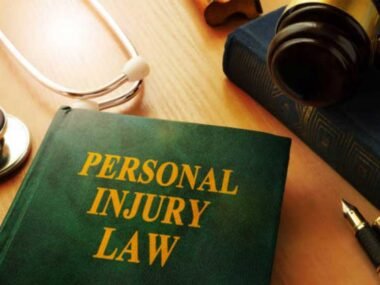Experiencing a car accident can be an incredibly disorienting and distressing event, often leaving you feeling overwhelmed and anxious in the wake of such a traumatic experience.
In the critical moments following a collision, it is imperative to remain calm and take specific, deliberate actions to protect your health and safeguard your legal rights. Uncertain about what you should do if you sustained a car accident? If that’s the case, fret no more; we’ll not let you be unaware anymore!
This detailed step-by-step will assist you in navigating through this challenging situation with clarity and purpose. So, what are you still waiting for? Let’s look at each step in detail.
Ensure Safety First
If you can do so without risking further harm, move your vehicle to a secure location, such as the roadside or a nearby parking lot. This way, you can alleviate the risk of further collisions and ensure the protection of both yourself and others.
Then, you should turn off your car’s engine and put hazard lights on to warn approaching drivers of your situation. If you or any passengers have sustained injuries, it may be safest to remain inside the vehicle until emergency services arrive. This can help avoid exacerbating any potential injuries.
Call Emergency Services
Another must-do thing is to dial 911 right away to report the accident to emergency services. Even though the accident seems minor, an official police report can be advantageous for filing insurance claims.
What’s more, this significant report will help in future legal matters. All you need to do is provide the emergency services provider with thorough details, which include;
- the precise location,
- the number of vehicles involved, and
- the severity of any visible injuries.
Once the report is created and dispatched, it will facilitate a rapid and efficient response from emergency responders.
Check for Injuries
It’s strongly advised that you should carefully assess your own condition and that of your passengers. So you can identify any injuries sustained during the car accident. If you think it’s safe to do so, encourage others involved in the collision to evaluate themselves for injuries, too.
Suppose anyone is in evident distress. In that case, feel free to offer comfortable words while waiting for the arrival of medical professionals. Be careful; don’t move anyone with a serious injury. Otherwise, this could lead to further medical complications.
Document the Scene
Make use of your smartphone or a camera—if you have one—to take clear photographs of the accident scene from various angles. Be sure, you capture detailed images of the damages to all vehicles involved in the accident.
During this process, concentrate on all visible impacts, such as broken glass and fluid leaks. Consider paying attention to contextual details, such as road conditions (wet, icy, etc.), skid marks, traffic signals, and any nearby, relevant signage.
When you are done with preparing thorough documentation, you will use it as evidence for your insurance claim. In addition, this documentation will help navigate potential legal proceedings.
Gather Information
As per expert advice, it’s essential to exchange essential contact and insurance-related information with all other drivers involved in the accident. Take the time to gather comprehensive details, such as;
- full names,
- phone numbers,
- addresses,
- insurance policy numbers, and
- license plate numbers.
Not just that, interact with any witnesses who may have observed the incident. If you do so, you will gather their statements and contact details. Their accounts could significantly bolster your car accident case, which will lead to favorable outcomes.
Avoid Admitting Fault
Most victims admit fault in the emotional aftermath of the accident when discussion around blame may arise. But that’s strongly prohibited.
No matter what your personal beliefs about responsibility are, you should refrain from discussing liability at the accident scene. Let law enforcement and insurance firms determine fault depending on various aspects like;
- the evidence presented,
- witness statements, and
- factual circumstances surrounding the accident.
Therefore, this cautious approach will save you from wrongful legal proceedings in the coming days.
Seek Medical Attention
Even if you feel physically unharmed, it’s prudent to gain a medical evaluation as soon as you can. Some injuries, such as soft tissue injuries, or whiplash, may not show immediate symptoms but can develop as time goes on.
That’s why it’s essential to visit a healthcare professional as a priority. Taking this proactive step will ensure that any potential injuries are diagnosed, treated, and well-documented. So you can leverage them for receiving your medical and insurance claims.
Notify Your Insurance Company
Your next move is to let your insurance provider know about the accident within 24 hours, if feasible. Don’t hesitate to provide a detailed account of the incident, how it happened, and what consequences you are facing.
Remember to incorporate all the information and documentation you gathered, containing photographs and witness details. When you communicate with your insurance firm, be honest and precise in your description of events. Avoid unnecessary elaborations that could complicate your insurance claim.
Consult with a Legal Professional
Car accidents result in substantial damages, serious injuries, and contentious disputes. To deal with these aftermaths, seeking guidance from a car accident attorney is a wise step. Working with an experienced legal professional will benefit you in many ways.
Suppose you sustained a car accident on Albany’s roads and are unsure of how to navigate the legal complexities associated with it. Explore Albany Car Accident Lawyers to choose the best one for your legal needs.
They will guide you on your rights and entitlements and assist in navigating the often-complex process of insurance claims. Plus, they can represent you effectively throughout the litigation process.
Keep a Detailed Record
Now is the time to maintain meticulous records of all expenses incurred as a direct result of the accident. Don’t forget to include medical bills, vehicle repair costs, expenses for car rentals, and any lost wages owing to missed work or job loss.
With legal support, you can document all these details efficiently with receipts and notes. Hence, it will strengthen your position if you need to seek compensation or present a case for damages in the future.
Final Note
Once you follow these essential steps right after a car accident, you can best protect your health, enhance your legal standing, and ensure a smooth recovery process. Always remain focused, prioritize your safety first, and seek professional assistance to manage the aftermath of your car accident.










